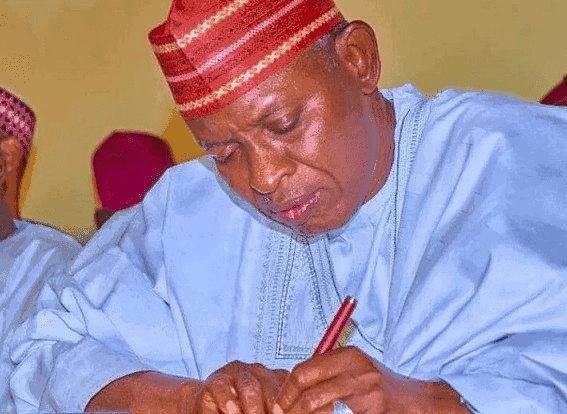Lawyers divided over Kano governorship election tribunal verdict
The tribunal judgment on the Kano Governorship election petition has continued to generate conflicting views among legal practitioners, especially on whether or not the invalidation of Governor Abba Kabiru Yusuf’s election will survive the integrity test at the appellate court.
The three men panel of Judges of the tribunal presided over by Justice Oluyemi Akintan-Osadebay on 20th September 20, 2023, declared Nasiru Yusuf Gawuna of the All Progressives Congress (APC) as lawful winner of the March 18, 2023 governorship election.
APC has dragged the Independent National Electoral Commission (INEC) before the tribunal, challenging the declaration of Governor Yusuf as winner on three major grounds.
First, Yusuf was not qualified to contest the election because he was not a member of the New Nigeria Peoples Party (NNPP).
Second, that over 200,000 invalid ballots were wrongfully counted as part of NNPP votes and should be removed, and that the election should be declared inconclusive because over 280,000 cancelled votes are more than the margin between the two leading parties.
Reacting to the judgment, a Kano based lawyer, Saeed Muhammad Tudun Wada said the decision was delivered in favour of the APC unjustly.
He also disagreed with some of the positions of the justices, adding that the verdict may not scale through at the upper court.
“The presiding judge completely shifted the burden of proof of the allegations in the petition especially on areas like the non-compliance with the Electoral Act 2022 to the respondents as against the position of the law on he who asserts, must proof and not otherwise.
“The tribunal heavily relied on his testimony and cancelled 165,616 votes and declared them as invalid. This is quite strange in the eyes of the law.
“Again, when the petitioner came to the tribunal and dumped the cancelled votes, no single witness spoke to those documents, not a single witness gave them life and talked about them,” he pointed out and explained that a petitioner who prays that there was substantial non-compliance with the electoral law, needed to bring evidence as to prove those polling units that he claims stricto sensu, there were non-compliance.
Continuing, the lawyer said: “The petitioner did not say those votes in contemplation were given to the respondents. It was the judge that attributed all of them to the 2nd respondent. Also, Section 63, 64 & 65 of the Electoral Act 2022, say once the ballot paper is unsigned or unstamped, if it’s part of a bundle that the presiding officer believed has emanated from INEC, then that ballot paper will still be used in the election.
“The fact that votes were unilaterally deducted from NNPP and none were deducted from APC leaves much to be desired. The court in its wisdom shifted the entire burden to the respondents to prove, such that the respondents became the petitioners and vice versa.”
In a swift response, one of the lead counsels of APC and immediate past Attorney General and Commissioner for Justice, Musa A. Lawan said the tribunal cannot be blamed for the failure of NNPP and INEC’s lawyers to defend their case, adding that court is not a father Christmas that will offer what the respondents did not ask for.
“In our petition, we clearly stated that NNPP did not win the election because about 250,000.00 invalid votes were counted in their favour and these are ballots that were not signed, dated and stamped. We filed an application to the tribunal to allow us access to NNPP ballots and the court granted the prayers under the supervision of INEC and in the presence of NNPP lawyers in 34 LGAs.
“Now, it is wrong for anybody to claim that the court is biased for allowing the counting of NNPP votes alone. The question is, do the NNPP requests for similar checks? The answer is no! The court is not Father Christmas. After inspection, we got 208,000 invalid ballots that were not stamped, dated and signed. After that, about 43,000 copies were not legible, leaving 165,000 remaining. These are the ballots used by the court to deliver judgment,” he insisted, adding that NNPP lawyers are dishing out falsehoods to the public to deliberately mislead them.
On why the election was not declared inconclusive considering the number of margins, based on the final scores between the two leading parties, Lawan said the court refused to declare election inconclusive because it was an alternative prayer.
“The court is not under obligation to take the alternative when it is certified with our second prayer which is the invalid votes,” Lawan argued.
